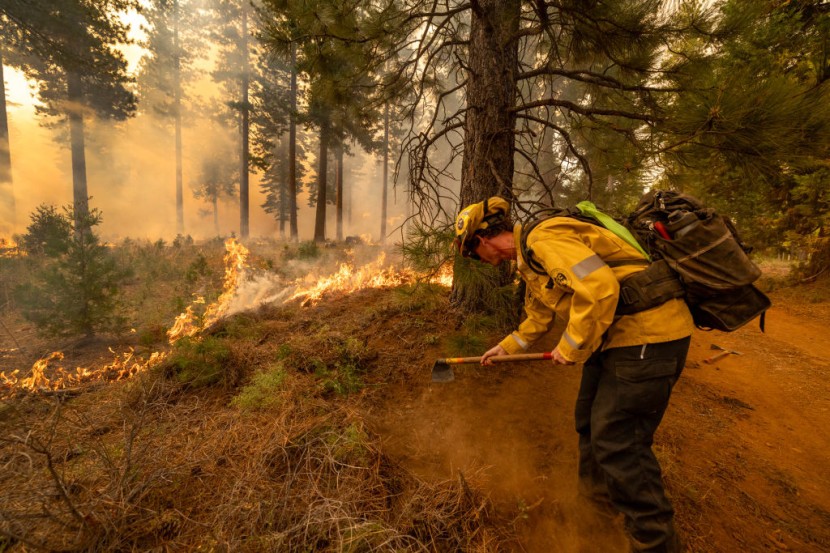
Scientists have discovered that trees stop "breathing" when the surrounding air is polluted by smoke from wildfires, according to a new report.
Colorado State University chemistry professor Delphine Farmer and post-doctoral researcher Mj Riches said their astounding finding was the result of a study that "started quite by accident" in the fall of 2020.
The pair wer conducting unrelated research in the Rocky Mountains to determine how plants emit gases known as volatile organic compounds when the site was overwhelmed by wildfire smoke.
After performing "our usual test to measure leaf-level photosynthesis of Ponderosa pines," the scientists said, they were "surprised to discover that the tree's pores were completely closed and photosynthesis was nearly zero."
"We also measured the leaves' emissions of their usual volatile organic compounds and found very low readings," Farmer and Riches wrote in an article published last week by the Conversation website. "This meant that the leaves weren't 'breathing' — they weren't inhaling the carbon dioxide they need to grow and weren't exhaling the chemicals they usually release."
The "unexpected results" led the scientists to "try to force photosynthesis and see if we could 'defibrillate' the leaf into its normal rhythm," they said.
"By changing the leaf's temperature and humidity, we cleared the leaf's 'airways' and saw a sudden improvement in photosynthesis and a burst of volatile organic compounds," they wrote.
After compiling "months of data," the researchers said they concluded that some plants respond to wildfire smoke by "effectively holding their breath, but not before they have been exposed to the smoke."
It's unclear exactly how it happens, with possible explanations involving smoke particles that coat or enter the leaves, covering or clogging their pores, respectively.
"Or the leaves could physically respond to the first signs of smoke and close their pores before they get the worst of it," Farmer and Riches wrote. "It's likely a combination of these and other responses."
The long-term impact of smoke on trees and other plants — including those grown for food — is unknown but with wildfires becoming more frequent and severe, "it's important to gain a better understanding," they said.
© 2025 HNGN, All rights reserved. Do not reproduce without permission.








